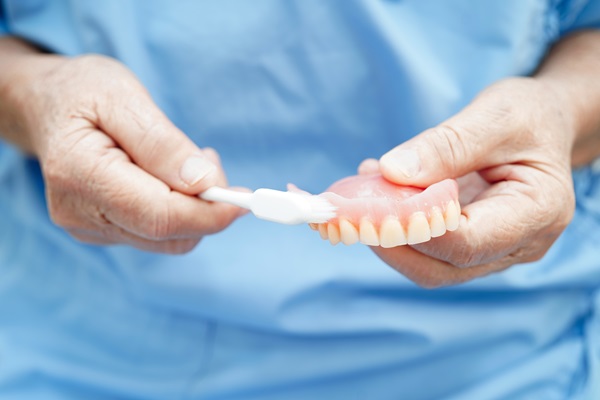What Types of Materials Are Used in Making Dentures?

A lot of people are curious about what materials are used to make dental dentures. This article will show you the different types of materials that can be used and their benefits, and which material is best for your situation.
What are Dental dentures?
Dental dentures are used to replace missing teeth that cannot be fixed with a dental bridge. A denture is removable and can typically be taken out at night when you sleep, but it may also have to be removed during meals if it obstructs your chewing ability or makes speaking difficult.
There are two types of dentures: complete set (all-on-four) dentures and partial dentures (traditional). Both types require using an adhesive material called denture adhesive cream before placing them in your mouth so they will stay securely on your gums all day long.
However, there are some differences between these two sets as far as the materials go, which we'll discuss later in this article.
Adhesive
First, let's take a look at denture adhesive creams. These come in a tube or jar and are made of waxes, fats, oils, and emulsifying agents. Some dentures will already have denture cream embedded into them (such as the Snap-On Smile), but if your dentures don't contain any adhesives, you'll need to apply some before putting them in your mouth.
This is where denture cream comes into play - it acts like glue so that they won't fall out when talking or eating/drinking.
Materials
Before we get further into which materials can be used for making dentures, let's talk about how these items all work together.
The most common material types used to make quality dental appliances include acrylic resin plastic, polyethylene, and denture teeth.
Acrylic resin is the material most dentures are made of. However, plastic can also make partial dentures. Polyethylene (plastic) is a popular choice for people who wear removable dentures because it's less expensive than other materials but still strong enough to hold up without any problems or discomfort.
Denture teeth come in three different styles: regular denture teeth, small compact denture teeth, and sizeable full-coverage denture teeth. Average-sized dentures have one tooth per arch, while smaller ones typically consist of two to four on each side.
Full coverage options give you an even more extensive set with more than six individual pieces that fit into your mouth all at once, so you have a full smile.
Recommendation
Now that we know what materials dentures are made of, the next question is: which material do dentists and dental technicians recommend?
It depends on your case - the type of teeth you lose, how many teeth need to be replaced, along with any special requirements. For example, suppose you go through extensive oral surgery or take medications like blood thinners. In that case, it's best to stick with polyethylene because the acrylic resin can cause bleeding in some cases.
On the other hand, if you wear denture adhesive cream every day (which most people do), then you'll want an appliance that contains denture adhesive so it will stay securely attached all day long. Again, this would be either acrylic resin plastic or polyethylene.
Conclusion
In the end, denture adhesives work best for most people since you don't have to worry about them falling out when talking or eating/drinking - they'll snap right back into place if anything causes it to pop off your gums (like drinking from a straw). Also, dentures that contain denture adhesive are typically made of acrylic compact ones depending on how many teeth need replacing and what kind of individual case we're dealing with.
Request an appointment here: https://www.dentistart.com or call Dentistart at (954) 317-1798 for an appointment in our Coral Springs office.
Check out what others are saying about our dental services on Yelp: Dentures in Coral Springs, FL.
Related Posts
Dental restorative procedures like implant supported dentures can be a solution to partial or complete teeth loss. No one wants to lose a tooth, but you may experience it due to situations beyond control. In addition to transforming your smile, the procedure can boost your self-esteem and have your teeth functioning fully in no time.An…
When it comes to restoring damaged or weakened teeth, dental crowns provide an effective and lasting solution. Dental crowns are custom-made caps placed over a tooth to restore shape, size, strength, and appearance. Understanding the different types of dental crowns available can help patients make informed decisions about their dental care.Porcelain crowns are crafted entirely…
While orthodontics is a dental specialty, many general dentists offer orthodontic treatment alongside traditional dental services. This is due to the fact that the appearance and health of one's teeth are connected. A general dentist who offers orthodontic services will have the necessary training and education to address minor to moderate orthodontic treatment, allowing patients…
Emergency dentistry can tell you a lot about tooth pain. They can tell you what the cause is, how to treat it, and what to do to prevent it in the future. Tooth pain is typically a sign there is something wrong with a tooth. The pain typically lingers until the root cause of it…
